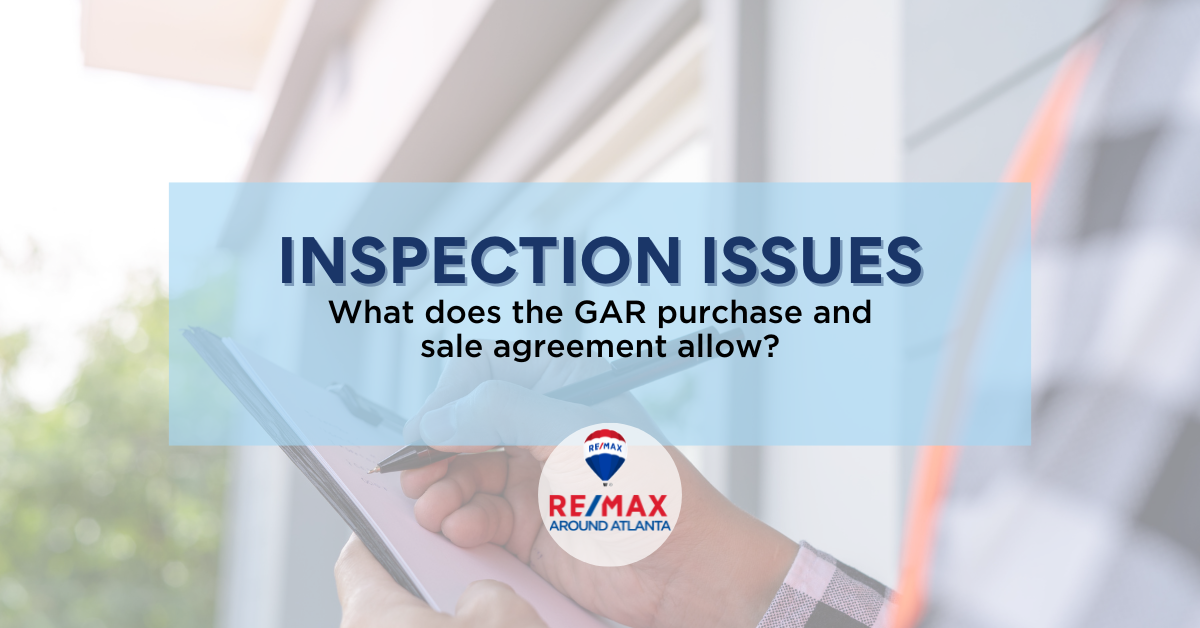|
The GAR Purchase and Sale Agreement gives the buyer and the buyer’s agents the right to enter and to thoroughly inspect, examine, test, and survey the property under contract. This right exists regardless of whether the property is being sold “as is,” subject to a due diligence period, or with a right to request repair of defects. The right to inspect has to be exercised at reasonable times and exists up to the time of closing. The buyer not only has a right to inspect the property, but under the doctrine of caveat emptor (buyer beware), also has a duty to do so. The underlying principle of law is that the buyer cannot claim that he has been deceived by false misrepresentations about defects that the buyer could have discovered.
Multiple Inspections If the discovery of a condition would cause a reasonably prudent buyer to investigate further, the buyer is under an obligation to investigate further. There are a lot of situations that might require a further investigation: mold, termites, ceiling stains, even a blocked passage. Consider the situation of a burst pipe after the initial inspection. The seller repairs the pipe and repairs the sheetrock. The seller must inform the buyer of the change in condition (the burst pipe and repair) and the Seller Property Disclosure would need to be updated to reflect the condition and repair. The buyer has the right to reinspect to evaluate the repair but is also responsible for the cost of repair following the reinspection. So long as the seller repairs the burst pipe and delivers the property in the same or better condition as it was on the offer date, the seller has fulfilled its obligation. Does the Buyer Have to Hire A Professional Inspector? There is no legal duty for a buyer to hire a professional home inspector or to hire an inspector at all. However, the failure to retain a professional home inspector can be used as a defense against a purchaser who subsequently discovers damage to the property. The argument is that the buyer failed to exercise due diligence by not retaining a professional. Remember, Georgia is a Buyer Beware state. Language Change for Buyer’s Payment of the Cost of Inspection Damage If the property suffers damage by the inspection, the buyer is also required to pay for the repair of any damage to the property caused by the inspection. This section previously provided that: “Buyer agrees to hold Seller and all Brokers harmless from all claims, injuries and damages relating to the exercise of these rights and shall promptly restore any portion of the Property damaged or disturbed from testing or other evaluations to a condition equal to or better than the condition it was in prior to such testing or evaluation.” This section was revised so that the buyer, rather than actually restoring the property damaged in an inspection, agrees to pay to seller the actual cost to restore the damage. This change was made so that the seller could control the repairs being made to the seller’s property. In addition, the entire section was added in a boldface font so that the buyer’s indemnification obligations are now very prominent. By doing this, it will also make it harder for buyers to argue that they did not see this section and should therefore not be bound by it. This indemnification obligation shall not apply to damage resulting from defects in the Property uncovered during the inspection of the Property. Reference: Weissman, Seth. The Red Book on Real Estate Contracts in Georgia (p. 821-836). BookBaby. Kindle Edition.
0 Comments
Leave a Reply. |
RMAAReal Estate News, Brokers Blog & More Categories
All
Archives
July 2024
|


 RSS Feed
RSS Feed